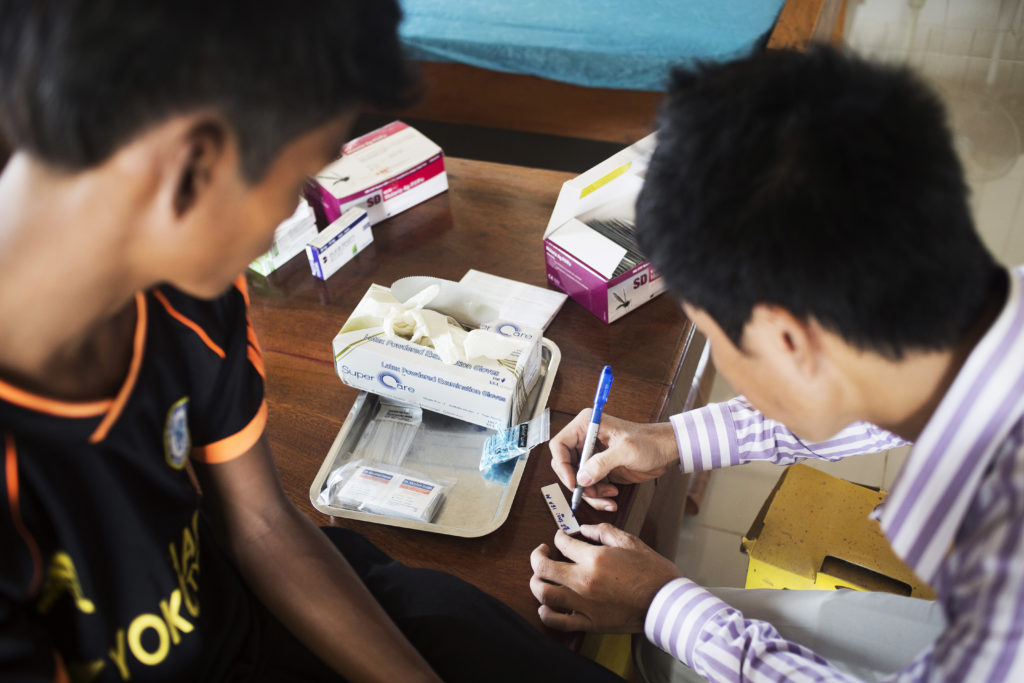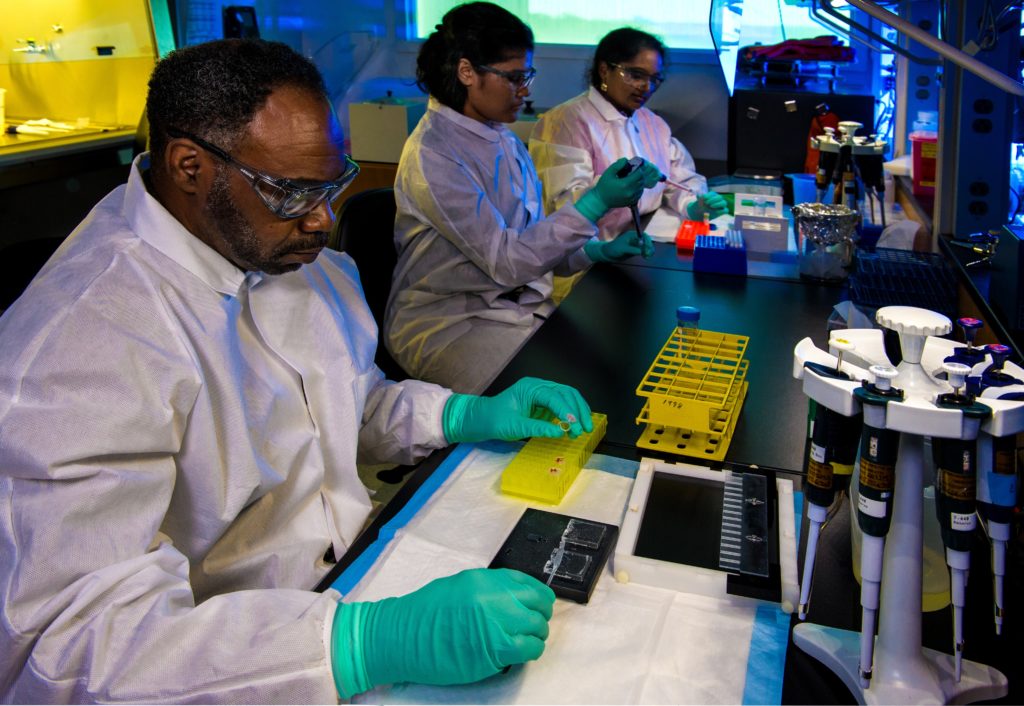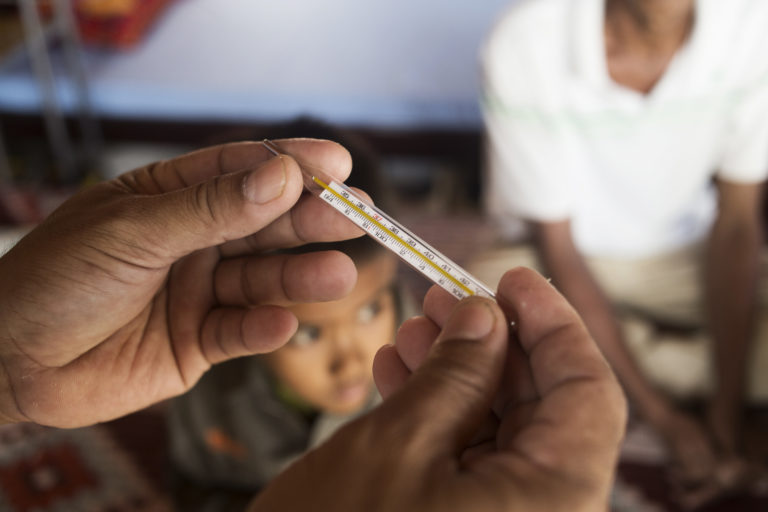We always look forward to this milestone date in the calendar. The Asia Pacific Malaria Elimination Network (APMEN) Annual Meeting, that took place last 7th September, is a forum for National Malaria Programmes and partners to review technical and operational progress and challenges from across Asia and the Pacific. Professor Tran Tranh Duong, Director, NIMPE, Viet Nam, in his opening remarks as the host of Malaria Week 2020, set the stage for the day’s discussions by highlighting the way COVID-19 has emphasised the importance of partnership between public and private sectors and civil society and also the role of community health workers.
We kicked things off with a session focused on private provider engagement for malaria elimination because over the years, private sector engagement has been identified as a critical challenge by APMEN NMCP partners on their journey towards malaria elimination. Discussions centred on the challenges and opportunities of strengthening the quality of private providers, how to integrate data from the private sector into national health systems and hearing the experiences of the TB program in India and, for the first time, from the National Malaria Control Centre in Zambia.
What are private providers?
In large parts of Asia, private providers are often a major if not primary source of healthcare, including for management of fever and other malaria symptoms. The private sector is not standardised and can include any outlet offering health information, products or services that is not managed by the government. This ranges from formal, registered private pharmacies to informal, unregistered drug shops and even a private practice run by individuals. Yet despite existing accessibility, the private sector is not routinely included in the design, planning and implementation of malaria elimination programming in Asia Pacific. This is a missed opportunity.
Some of the challenges that are faced, and that help explain the lack of systematic private sector engagement, may be related to concerns about the difficulty of communicating with remote private providers, quality assurance, absence of appropriate systems to collect surveillance data from the private providers, potential conflict between profit and quality and concerns around motivation of the private sector to contribute to public health objectives.
However, to achieve elimination, countries need to manage and report all malaria cases and in order to do this, the private sector needs to be engaged. In turn:
“As private providers in any country are rarely focused exclusively on malaria, any initiative to engage with this sector, improve quality, ensure timely reporting, will have benefits for the broader health system.”
Amita Chebbi, Senior Director, APMEN

The APMEN Review
To support National Malaria Programs (NMPs) in the region to develop and implement strategies that include the private providers, APMEN commissioned a review of private sector engagement approaches used in the region, which outlines innovative, targeted and impactful approaches and tools.
Published today, this review provides a framework for NMPs to think through the steps involved in developing a private provider engagement plan that is appropriate to their country context and can accelerate progress.
Headline findings and recommendations for such a plan include:
- Tailor private sector engagement strategies to local needs and evidence
- Invest in the development of “light touch” private sector landscaping tools
- Engage early and regularly
- Harmonize training, reporting and other engagement components
- Revisit accreditation process
Country Experiences
Dr Didik Budijanto, Director of the VBDCP, Ministry of Health – Indonesia shared the experience of the national malaria program in engaging private providers through partnerships that were more effective at the local level and involved close engagement between the private sector and local health offices. He also said that investing in capacity building efforts and supply of essential commodities can motivate closer collaboration with private providers.
Dr Wint Phyo Than, Deputy Director, VBDCP, Ministry of Health and Sports in Myanmar shared an important point about the limitation of program resources for private sector engagement and also the operational challenges involved in working in non-government controlled areas.
Peer to peer collaboration
As an integral founding principle, APMEN’s platform supports peer to peer collaboration, sharing of expertise across the network, and also promotes knowledge exchange on the latest developments from both research and implementation. The annual meeting is an opportunity to bring together key players from across the Asia Pacific region and this year, to further nurture outside collaboration, APMEN invited Dr Mutinta Mudenda, Director of the National Malaria Elimination Centre in Zambia, to provide NMPs with the opportunity to learn from the African context too.
In 2017 alone, there were 219 million new cases of malaria worldwide and an estimated 435,000 malaria deaths – 92% of which were in Africa.
Zambia is making huge strides towards malaria elimination.

Session participants benefited from the insights shared by Dr Mudenda on the Zambia’s experience with private providers.
The session included a panel discussion with expert representatives from the National Malaria Elimination Centre (NMEC) Zambia, WHO Myanmar, PSI and Clinton Health Access Initiative (CHAI).
The following recommendations were discussed in the session to initiate and improve private sector engagement in countries nearing elimination:
- National Malaria Programmes (NMPs) to develop a private provider engagement plan that is appropriate to their country context and which can accelerate progress towards malaria elimination. A strategy is required to bring private and public together and a plan on which you can track progress against milestones, and how this is translated at the sub-national level too.
- Integrated surveillance system that gives you a comprehensive view of the private and public sector is crucial, to give you an accurate view of the situation and prioritise action accordingly. This will look different in each country, with many possible permutations, including using a combination of paper and electronic reporting, using a mix of public health workers and volunteers, and also how data is aggregated at local and national levels.
- Quality of care has often been perceived as a stumbling work in this work but it is possible to ensure quality of care through the private sector through training, mentoring, and ensuring they see themselves as integral to the broader national health system. Each country must find ways to engage them, most appropriately, and some case studies and experiences were shared to inspire fellow partners.
To read APMEN’s Rapid Review of Private Provider Engagement in Asia Pacific (Sept, 2020), click here.
We would like to extend particular thanks to our session chairs and speakers:
Ms Sandii Lwin, Managing Director, Myanmar Health and Development Consortium (MHDC)
Dr Sami Nahzat, NMLCP Manager, Ministry of Public Health, Afghanistan
Dr Didik Budijanto, Director – Vector-borne and Zoonotic Disease Prevention and Control Program, MOH, Indonesia
Dr Wint Phyo Than, Deputy Director (VBDC), Ministry of Health & Sports, Myanmar
Ms Kemi Tesfazghi, Program Director (GEMS+), Population Services International (PSI)
Dr Badri Thapa, Scientist (Malaria), WHO Myanmar
Dr Mutinta Mudenda, Director, National Malaria Elimination Centre, Zambia
Mr Arnab Pal, Senior Manager (TB Programs), Clinton Health Access Initiative (CHAI)
Thank you to everyone who attended the Annual Meeting. A recording can be viewed HERE.
For more information on APMEN support, please contact the APMEN Secretariat: secretariat@apmen.org

